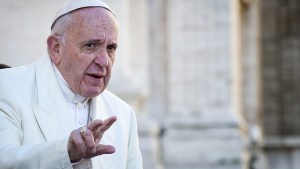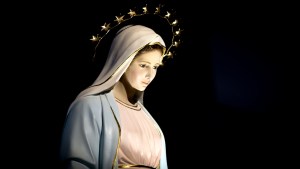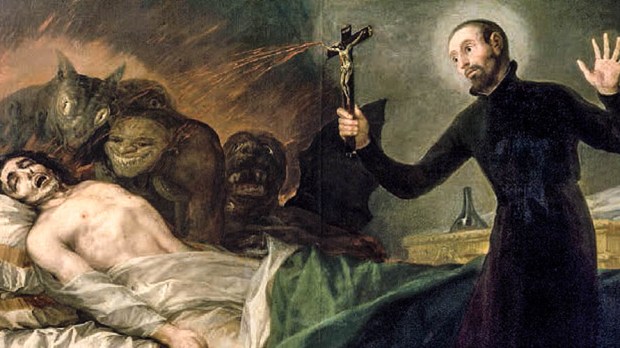Requests for exorcisms have been steadily on the rise during the past 10 years, prompting the Catholic Church in the US to increase her number of priest exorcists from 12 to 50. Nevertheless, a recent trend has seen the emergence of countless online “exorcism” ministries.
These ministries are primarily led by Protestant groups, but sometimes they use Catholic prayers, including the official Exorcism Rite.
As well, it doesn’t take long to find the Exorcism Rite online, and Catholics may be tempted to pray the official prayers when faced with worries about the work of the devil in their lives.
This issue naturally brings up the question, “Who can perform exorcisms? Is there a danger in saying these prayers as a lay person?”
The official Rite of Exorcism is very clear about who can perform exorcisms: “A priest—one who is expressly and particularly authorized by the Ordinary [local bishop].”
This means that no lay person and no priest not so authorized can perform this reserved Rite.
Moreover, the Rite mentions that the priest “must be properly distinguished for his piety, prudence, and integrity of life. He should fulfill this devout undertaking in all constancy and humility… he ought to be of mature years, and revered not alone for his office but for his moral qualities.”

Read more:
Pope Francis: You can’t dialogue with the devil!
In other words, the priest appointed by the bishop must be a holy priest, one who will approach this powerful office with humility and not pride. He needs to realize that the demons do not leave a person because of his power but because of God’s power. The exorcist is simply an instrument that God uses to expel the presence of evil from an individual or place.

Read more:
Devil admits to exorcist: “I’m afraid of the Madonna”
Put simply, lay people do not have the ordained power or proper authority to perform an exorcism. This would also be true for priests trying to perform exorcisms without the bishop’s authority (if such a case were to arise). The priest would be acting in disobedience to his direct superior, and put himself into the devil’s playground.
On the other hand, lay people can pray general “exorcism prayers” that invoke God’s help for deliverance from the demonic. These prayers do not claim any personal power over demons and are similar to the Our Father, which ends by saying, “deliver us from evil.” Such prayers are technically not “exorcism” prayers, but “deliverance” prayers and do not rely on any gifts given at priestly ordination.
What is certain is that we should always be cautious when something demonic is involved. The devil is a deceiver and intent on luring us into evil, though of course his power is nothing compared to God’s.
The Church, in her wisdom, has asked that only specific priests be committed to the ministry of exorcism. It is dangerous business and one that has eternal consequences.
Read more:
A prayer of exorcism taught by Saint Anthony

